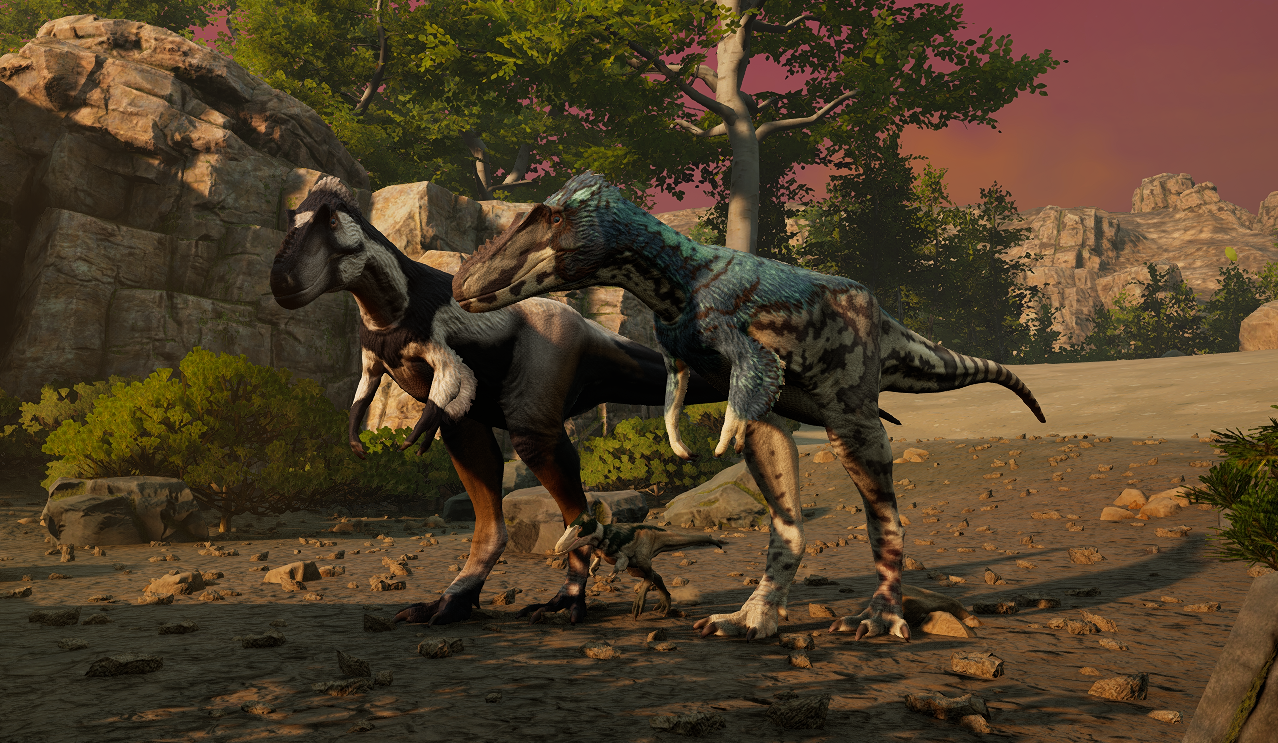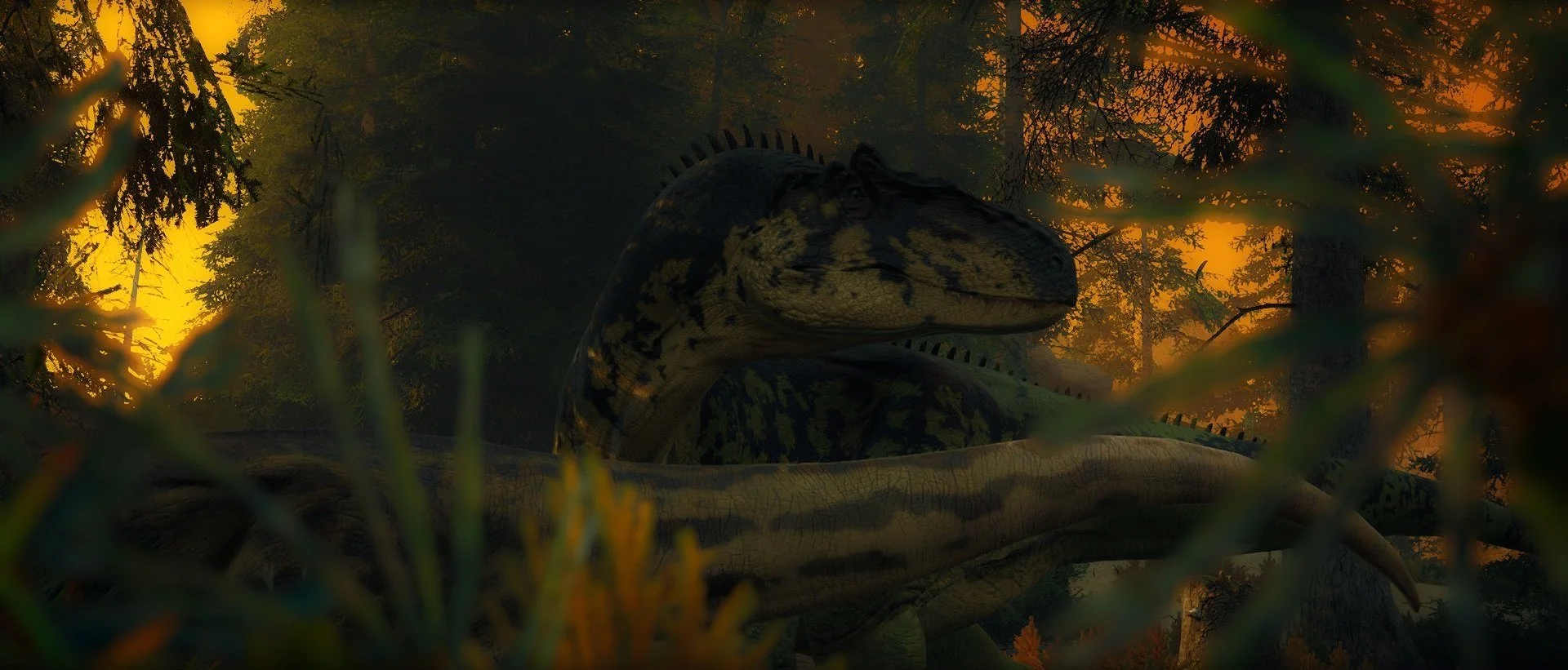Alioramus
Tier: 3
Type: Terrestrial carnivore
Passive growth time: 2 hrs 37 min
Pack size: 6 sub adults/adults, 1-12 juveniles/adolescents
Hierarchy: Patriarchal
Mating bond: Monogamous
Nest size: 1-4 offspring per pair
Diet tags: Carnivore, non-cannibalistic, opportunistic & semi-scavenger
Preferred food: Tier 1-4 herbivores & carnivores
Species specific rules: If they have at least 3 sub adults/adults, they can also hunt Tier 5-6 herbivores & carnivores.
Can only scavenge when they have 2 or less.Behavior
From birth Alioramus are taught the value of silence, observation, and speed. Their strength comes in their intelligence and coordination. Within their pack they are highly affectionate creatures that crave the bonded structure of pack life. Their bond is maybe one of the strongest of all the carnivores that they would give up their life to save a packmate, and with emotional periods of grief after one falls. They display a high intelligence and willingness to work together that make them a formidable team. Alioramus prefers affection over violence towards one another, spending most of their time strengthening that bond and growing as a family unit. They do almost everything together and have no pack structure, allowing each member to have equal push or pull upon the others. Alioramus pack structure changes from pack to pack based on what is best suited for the pack. They also tend to be the most tolerant of albinos, and packmates with disabilities, such as a permanent limp, deafness or blindness, and will take care of them well into old age.
Recommended behaviors
╸Alioramus prefers to be in packs and can easily suffer from loneliness.
╸They prefer lurking at the edges of the forest where trees meet the plains in search of prey.
╸Alioramus tend to hunt in large packs.
Mating
Alioramus mate for life. However, there is no conclusive ritual or reason as to how they pick their mates. Typically, mates are found amongst pack members who had known each other the longest, and non-mated Alioramus tend to die early on, as well as widowed Alioramus perish from grief shortly after their partner dies.
Nesting & offspring
Raising young is a group effort, and these nomadic creatures often do not stop their trek for their babies, finding it safer to constantly be on the move to prevent any prying eyes from finding their vulnerable young. The first hunt for young Alioramus is the most important, often with adults letting them land the final blow after they shadow the adults for many months. If there is space within the pack, young often remain with their families for life, but otherwise, they tend to leave without a trace. If they run into their young later on in life, parents will often greet them with cooing calls before returning on their way.




